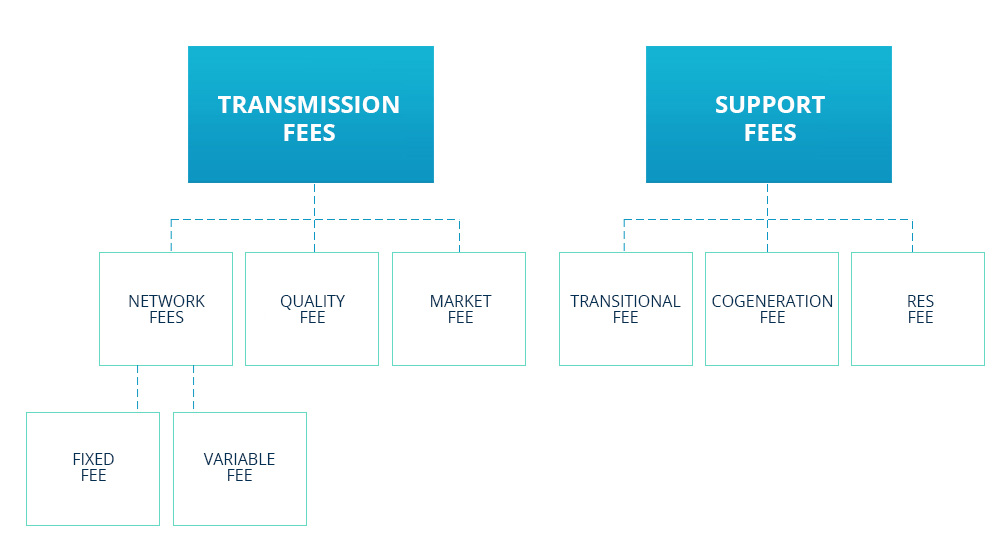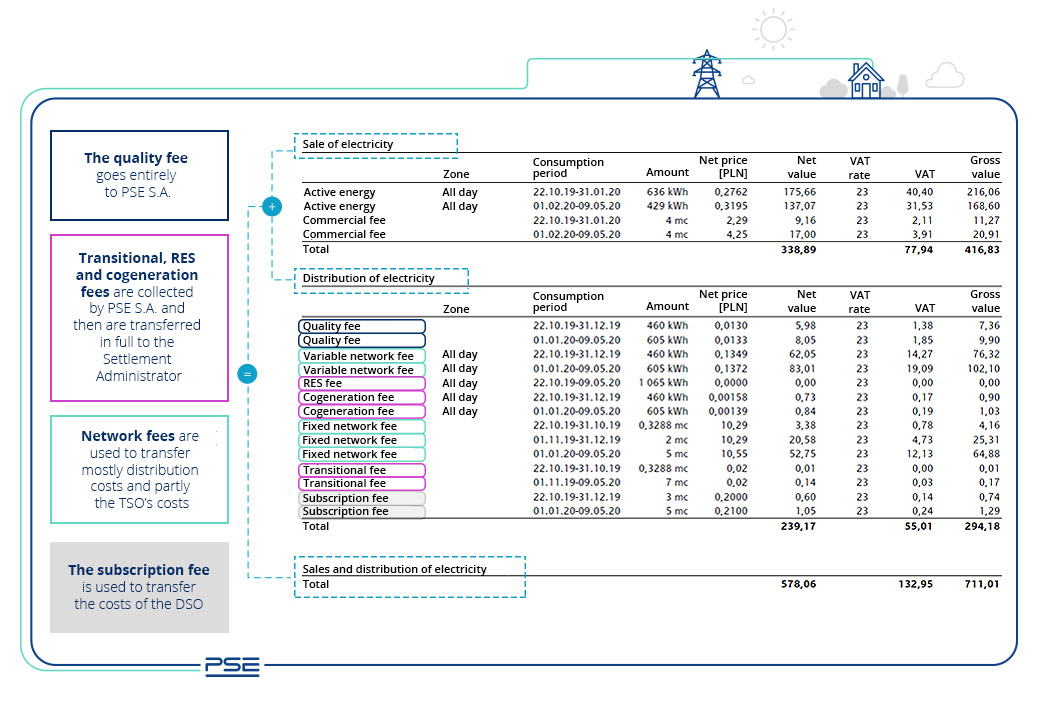PSE operations vs. transmission tariff and electricity bills
The transmission of electricity to consumers is possible owing to an extensive transmission infrastructure. The responsibility for the infrastructure on the part of PSE entails the need to carry out maintenance and repair work as well as the necessary, economically justified modernization and expansion. This is to address changes resulting from, among other things, an increase in the demand and structure of electricity consumption in the country and changes in the structure and location of generating sources.
Maintaining the required quality parameters of the supplied electricity and ensuring the safety of the NPS operation involves the need to purchase system services provided by electricity producers.
Expenditures related to the transmission activities, i.e. operating costs and capital expenditures, are financed according to the principles set forth in the applicable legal regulations, and the expenditures are covered with revenues from the transmission services received based on the company's Tariff approved by the President of the ERO .
The company's tariff is a set of prices and fee rates as well as the conditions for their application, prepared annually based on the planned, justified costs of business, and the return on capital employed in the transmission activities to finance investment projects. The costs forming the basis for the calculation of the transmission service fees are subject to an assessment by the President of the ERO, who approves the Tariff in the course of the administrative proceedings.
Maintaining the required quality parameters of the supplied electricity and ensuring the safety of the NPS operation involves the need to purchase system services provided by electricity producers.
Expenditures related to the transmission activities, i.e. operating costs and capital expenditures, are financed according to the principles set forth in the applicable legal regulations, and the expenditures are covered with revenues from the transmission services received based on the company's Tariff approved by the President of the ERO .
The company's tariff is a set of prices and fee rates as well as the conditions for their application, prepared annually based on the planned, justified costs of business, and the return on capital employed in the transmission activities to finance investment projects. The costs forming the basis for the calculation of the transmission service fees are subject to an assessment by the President of the ERO, who approves the Tariff in the course of the administrative proceedings.
In 2020, the PSE's tariff included the tariff fee rates:
- calculated by the TSO based on the costs of the PSE's transmission activities and return on capital,
- determined by the President of ERO and not related directly to the PSE’s business – a RES fee related to ensuring availability of electricity from renewable sources in the NPS; in 2020, the RES fee rate was PLN 0/MWh,
- determined by the competent minister for energy and not related directly to the PSE's business – oa cogeneration fee related to ensuring availability of electricity from high-efficiency cogeneration in the NPS; in 2020, the cogeneration fee was PLN 1.39/MWh.
- defined in the Act on the rules for the compensation of costs incurred by generating entities in connection with early termination of long-term contracts, not directly related to the PSE’s business – a transitional fee related to the service of making the NPS available.
In addition, pursuant to the Act on the capacity market, a capacity fee is levied on end users as of January 1, 2021, which is intended to pay compensation for the provision of a standby service to supply electric power to the power system, and to supply such power to the system during periods of stress events (vulnerability periods).
Revenues from RES, cogeneration and transitional fees collected by PSE are transferred in full to the Settlement Administrator for further redistribution to electricity generating entities.
Revenues from RES, cogeneration and transitional fees collected by PSE are transferred in full to the Settlement Administrator for further redistribution to electricity generating entities.


